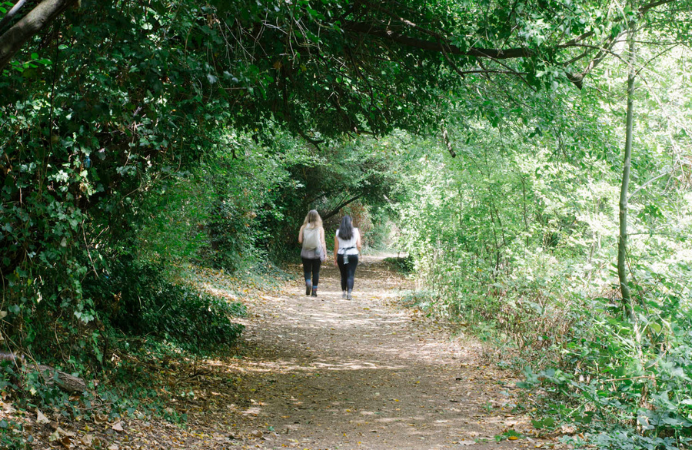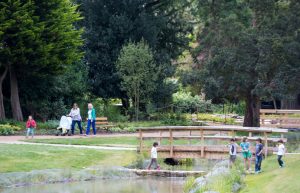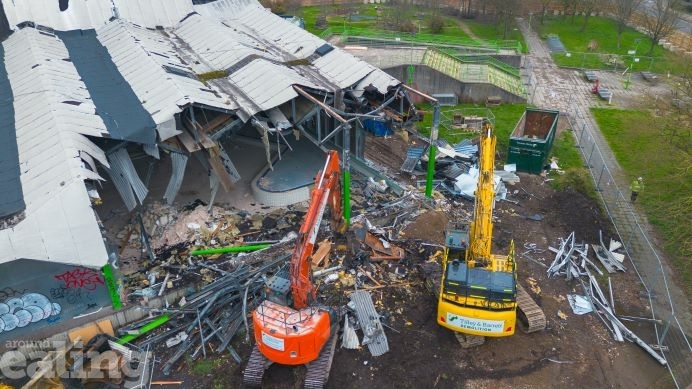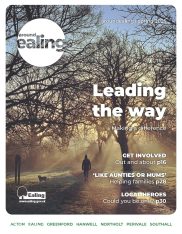Ealing Council has exciting plans for the potential creation of a regional park in the borough.
This is an ambitious project which will provide an opportunity to connect parts of the borough and contribute to reaching the council’s climate action objectives, helping to improve the health and wellbeing of residents.
The project is in its very first stages. The council will consult extensively with residents, local groups and expert organisations to further develop an ambitious vision for the creation of the first regional park in the borough.
Why a regional park?
A new regional park in the borough could:
- Provide more opportunities for residents to connect with nature, improving health and wellbeing
- Become a new destination for nature lovers, culture and play in the capital and beyond, making Ealing a more attractive place to live, work and visit
- Restore natural habitats, increase biodiversity and provide space for nature to re-establish itself, strengthening borough’s climate resilience whilst improving air quality for generations to come
- Provide much needed flood resilience
- Create jobs, strengthening the local economy
- Provide a well-connected network of walking and cycling routes for residents and visitors to enjoy
- Create new places for people to play sports like cricket, tennis and football
- Contribute to Ealing’s aspiration to be west London’s leading borough for arts and culture, including looking into building a new venue
Councillor Peter Mason, leader of Ealing Council, said: “We are creating a rare opportunity for an incredible new regional park in our capital. The Elizabeth II Park has transformed the east of London and this new regional park has the potential to have similar positive effect on the borough and west London.
“The proposed regional park would provide a beautiful new space with rewilded land and woodlands as well as new places to improve health, play sports and enjoy cultural events right in the heart of our borough.”
Councillor Deirdre Costigan, Ealing Council’s deputy leader and cabinet member for climate action, said: “Our plan for a new regional park is a massive step forward in the work we are doing to tackle air pollution and reduce the impact of the climate emergency. We promised residents 10 new parks and 50,000 more trees but a regional park will be a real game changer, delivering not just new open spaces, but active travel routes, wildlife rich wetlands and habitats and a great day out for all our residents.
“We are looking forward to hearing your views later this year which will help us develop the plans for the new park.“
First steps
The council will soon appoint specialists to develop more detailed plans for the regional park, which may include a comprehensive review of the golf facilities across the borough.
In line with the council’s commitment to be open and transparent, residents and key stakeholders will be consulted on proposals before any decision is made, and the first public consultation will be on the possible closure of Perivale Park Golf Course.
Additionally, in the future residents will be asked for their views on the potential to have a new cultural venue in the new regional park.
Councillor Polly Knewstub, cabinet member for thriving communities, said: “A large new park in the borough is a hugely exciting opportunity for us to improve the lives of Ealing residents and lead the capital. In that context, it is absolutely right for us as a council to review local provision of golf courses and set that against the needs of all of our residents and how easy it is for them to get to and enjoy open spaces, nature and sports pitches and courts.”
Listening to residents
It is clear that parks, playgrounds and open spaces are really important to Ealing residents.
Since the council’s plan was published last year, Ealing Council has been delivering on its promises, including creating 10 new parks and open spaces, planting another 50,000 trees and enhancing the biodiversity of our green spaces for the benefit of everyone as well as helping combat climate change, dirty air and flooding.
Decisions are subject to cabinet approval on 13 September 2023.







